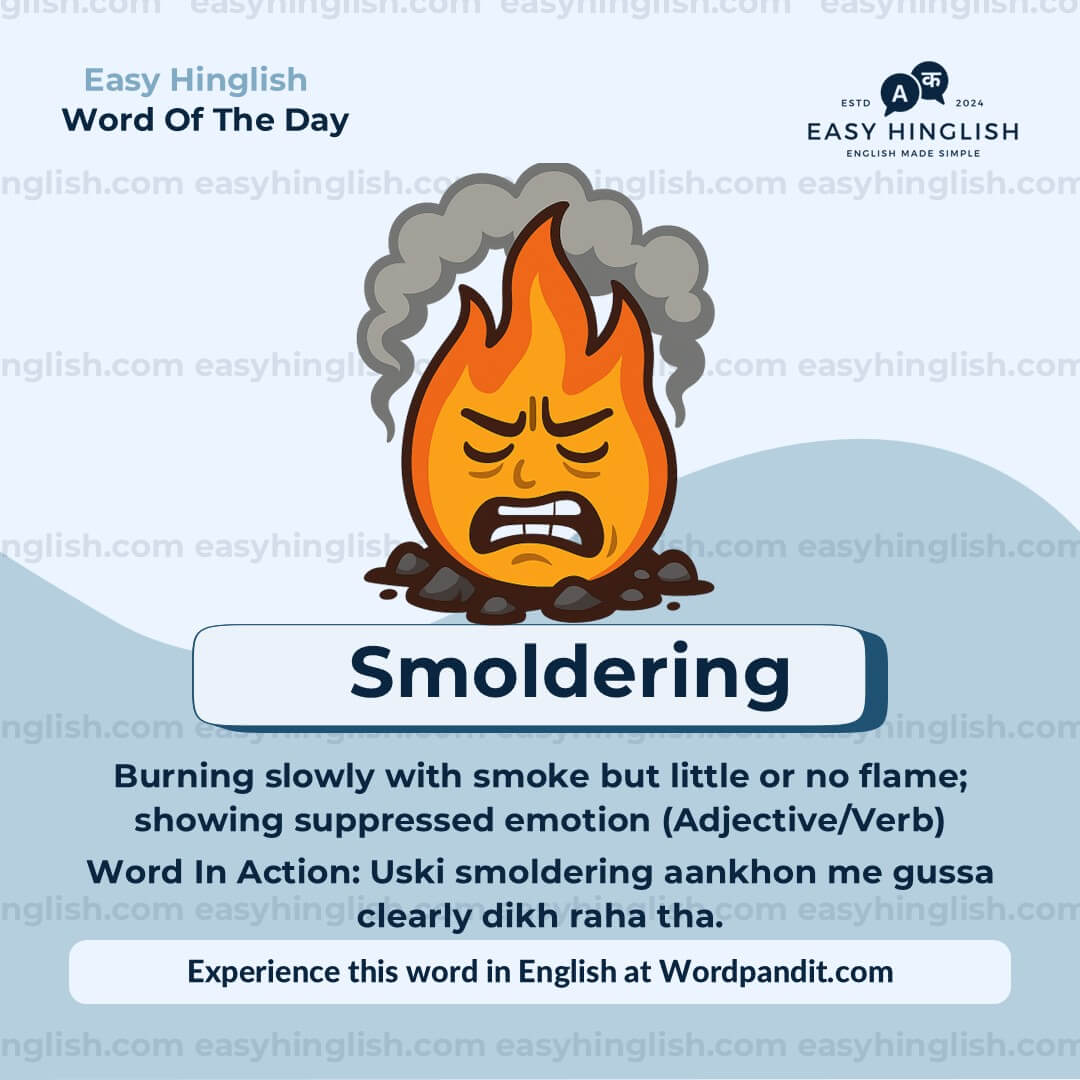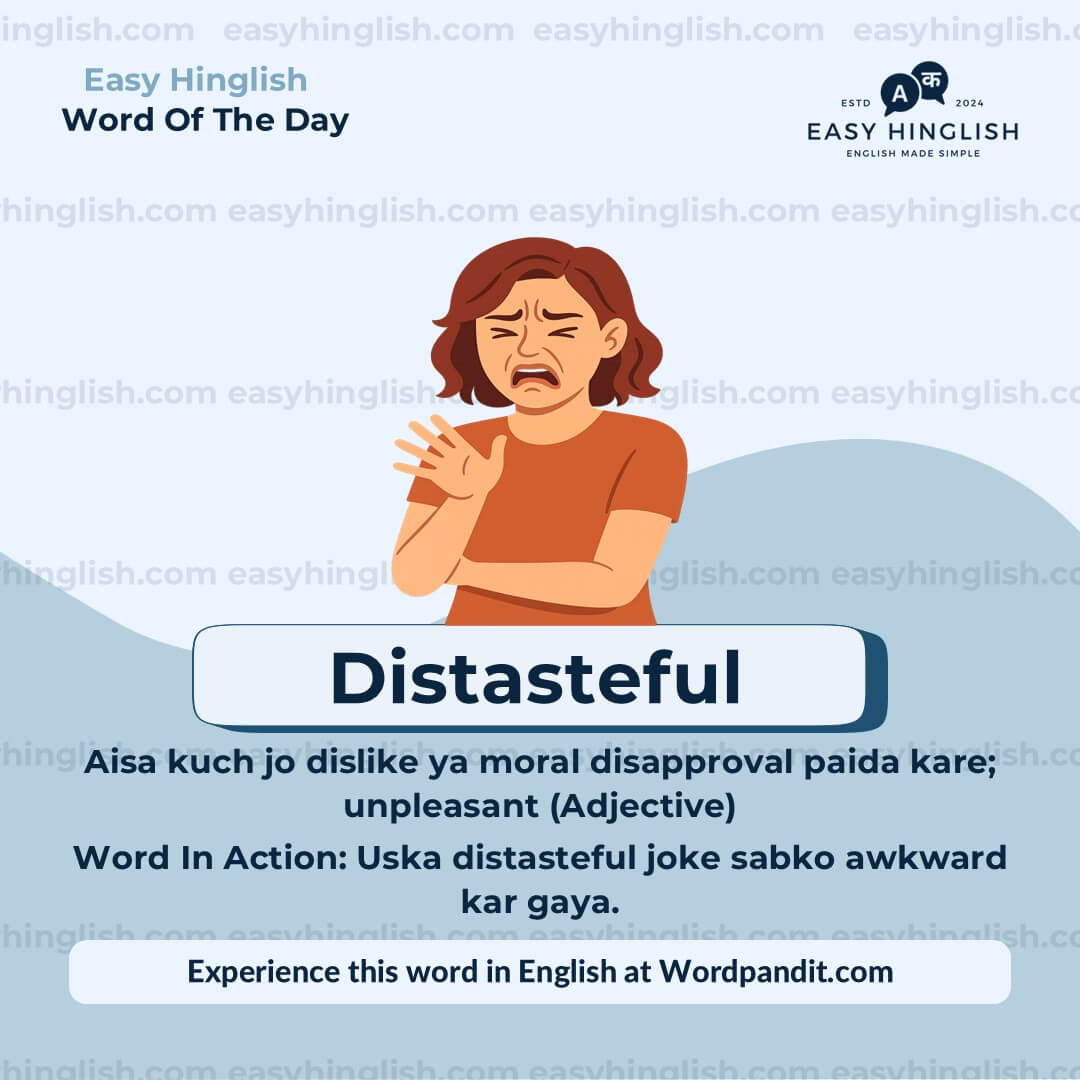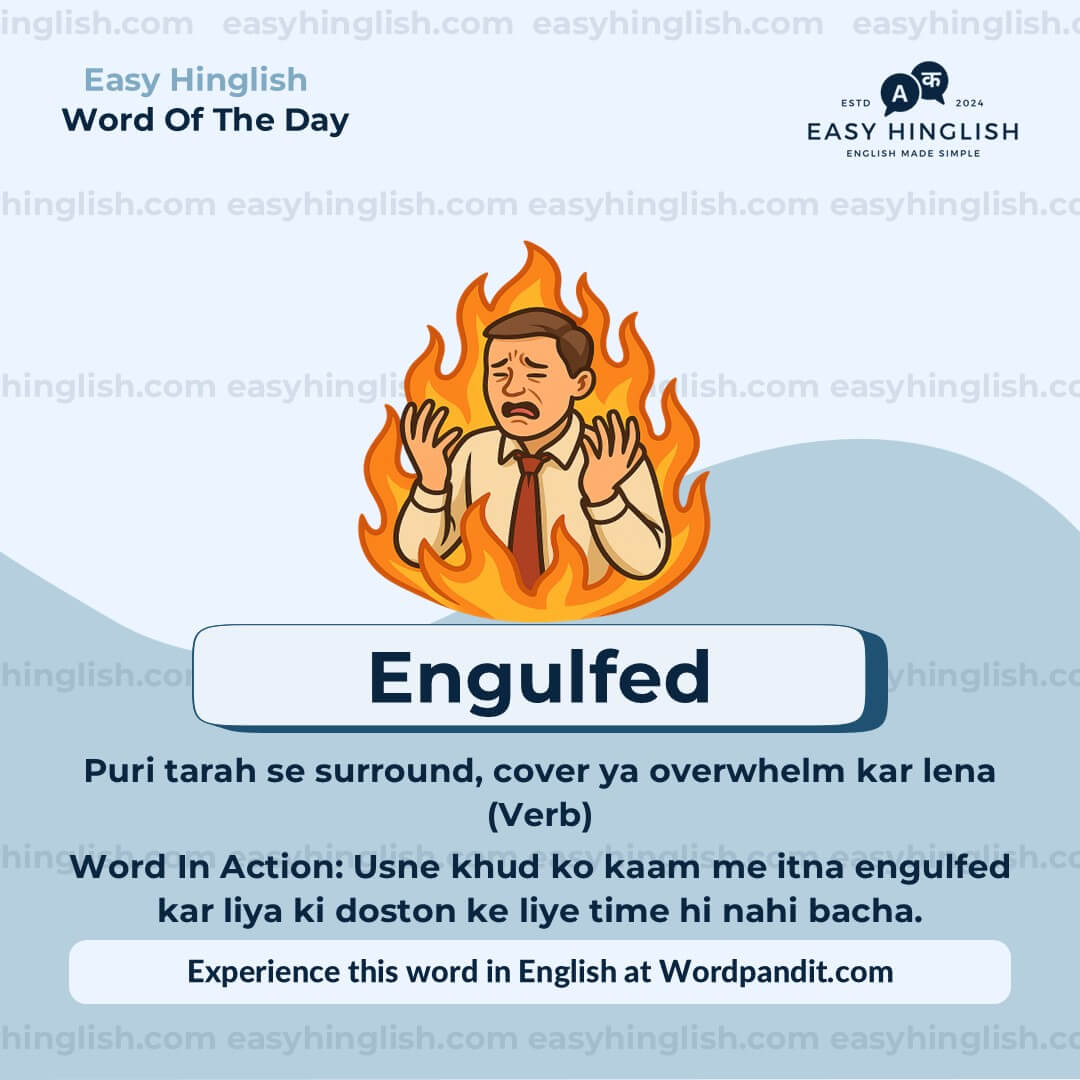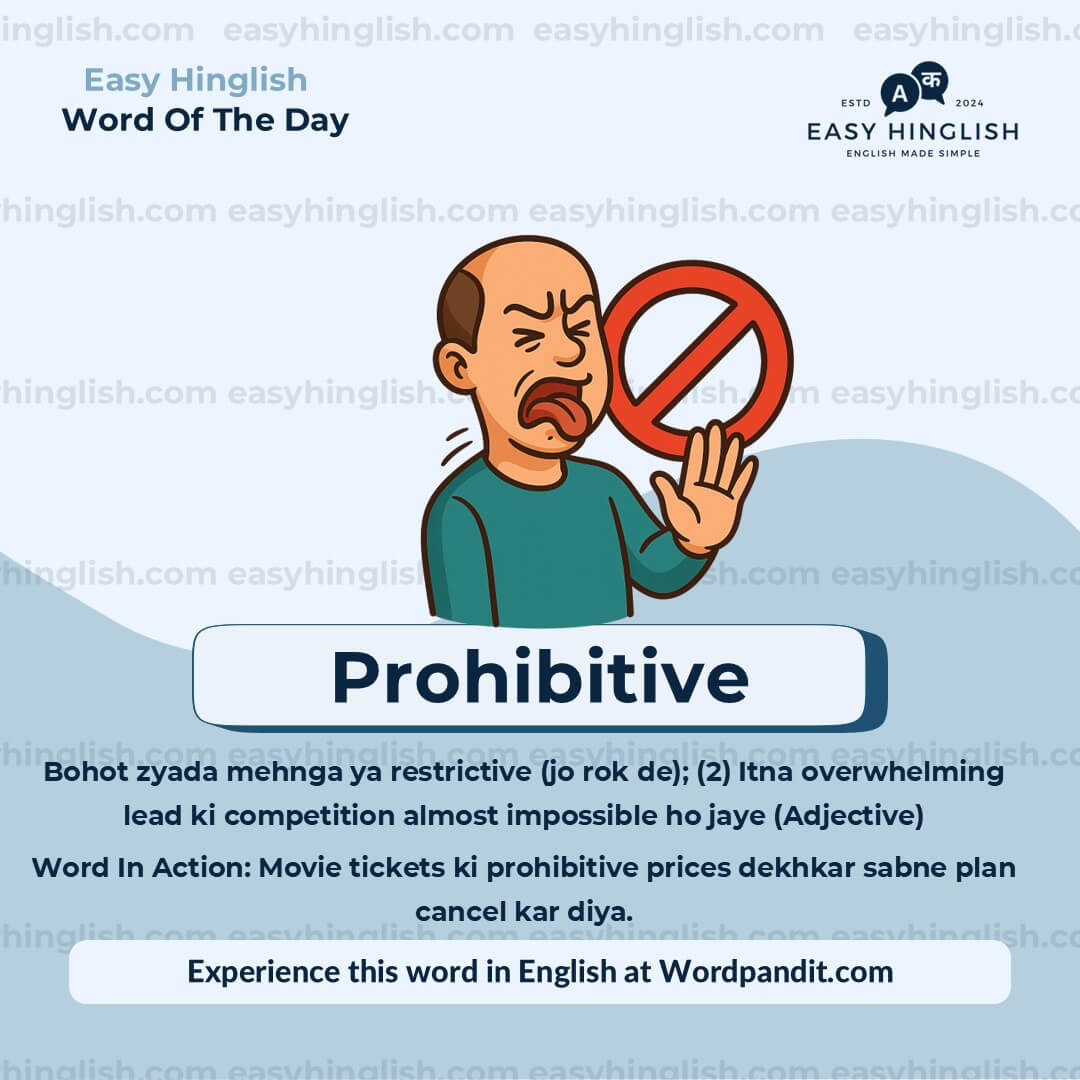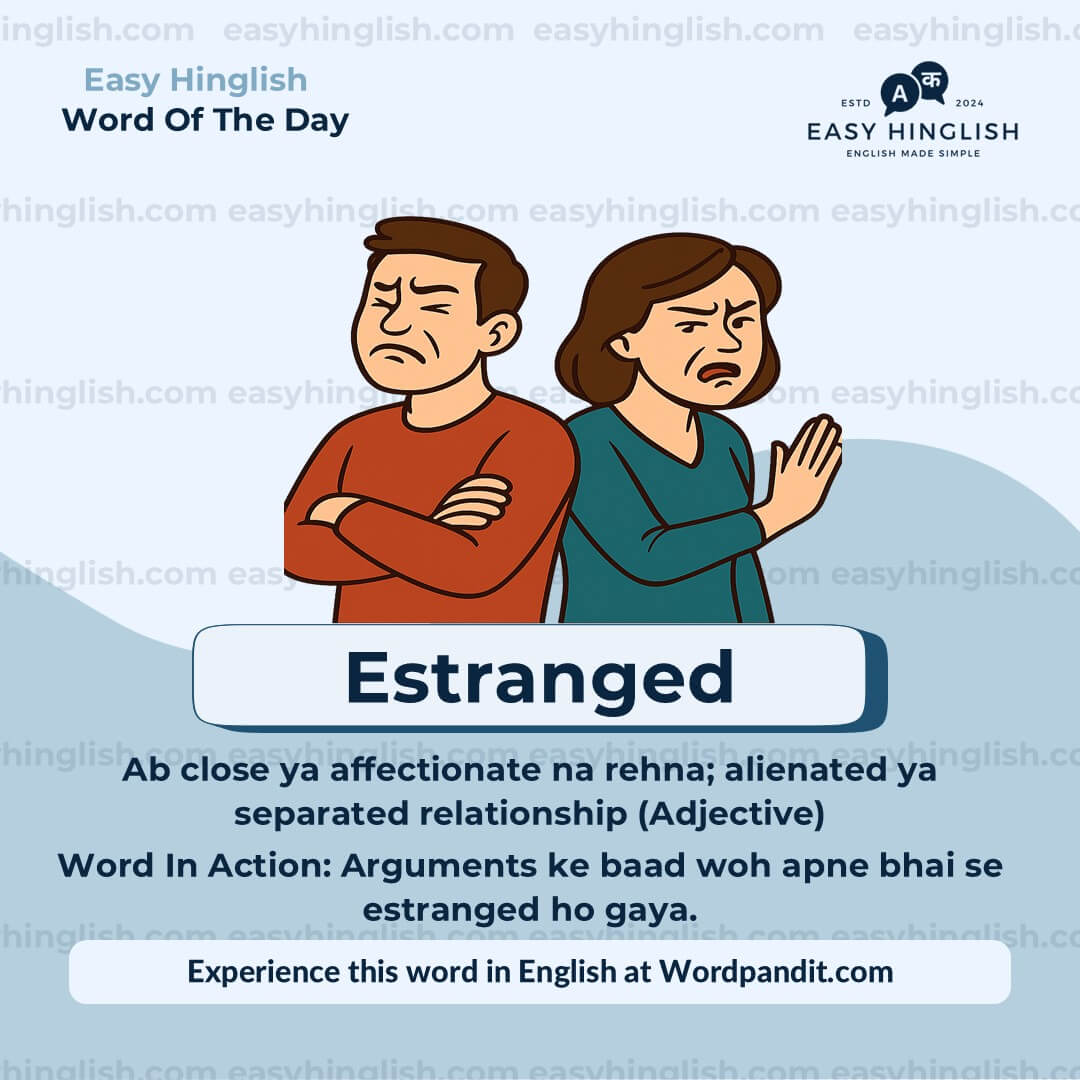Daily Vocabulary International Newspapers aur Publications se Seekho
Wordpandit ke Global Vocabulary Hub ke Saath Apni Vocabulary Expand Karo
Wordpandit par, hum aapko ek truly global vocabulary develop karne me madad karte hain, jo duniya ke sabse respected international publications se li gayi hoti hai. Yeh section aapko naye words se introduce karne ke liye design kiya gaya hai jo global conversations aur trends ko define karte hain.
Global Sources ka Power
Aapko globally sochne aur communicate karne me madad dene ke liye, hum vocabulary curate karte hain world ke top international sources se, jaise:
- The New York Times
- The Washington Post
- BBC
- The Guardian
- The Economist
- Scientific American
- Psychology Today
- Aur bhi bahut saare...
Globally Socho, Competitively Seekho
Hamare daily updates se aap international publications ke naye words seekhoge jo global news aur developments se jude hote hain. Isse aapki vocabulary current bhi rahegi aur globally relevant bhi.
Apni Global Soch Ko Expand Karo
Agar aap international exams ki tayari kar rahe ho, global business communication me excel karna chahte ho, ya sirf apni language skills improve karna chahte ho, toh Wordpandit aapko global level pe grow karne ke liye best resources provide karta hai.
Smart Learning, Global Reach
Hamari learning methodology me global examples, memory aids, aur interactive activities shamil hain, jo naye words ko effectively yaad karne aur real-world me use karne me madad karti hain.
Aaj Hi Apni Global Vocabulary Journey Shuru Karo!
Wordpandit Kyun Choose Karein?
Practical Learning: Aise words seekho jo real-world reading aur communication me aapko sach me kaam aayenge, taaki aapki comprehension aur bolne ki skills improve ho.
Diverse Content: Current affairs se lekar scientific breakthroughs tak, hamare different sources aapko multiple domains ki vocabulary seekhne ka moka dete hain.
Effortless Integration: Wordpandit ko apni daily routine ka part banao. Sirf kuch minute har din dene se aapki vocabulary time ke saath kaafi improve ho sakti hai.
Vocabulary Mastery Tak Ka Aapka Safar
- Regularly hamare Daily Vocabulary section ko visit karo
- Naye words explore karo aur unka context me use samjho
- In words ko apni writing aur bolne ki practice me use karne ki koshish karo
- Jaise-jaise aapke words badhte hain, apni progress ko track karo
Aaj Hi Apni Vocabulary Journey Shuru Karo!
Wordpandit ke saath vocabulary improve karna start karo. Roz thoda effort dalne se aap ek strong vocabulary develop kar sakte ho jo academic, professional, aur personal life me kaafi kaam aayegi.
Yaad rakho, ek naya shabd roz seekhna linguistic limitations ko door karne ka best tareeka hai! Wordpandit ko apni daily learning journey ka sathi banao aur vocabulary excellence ki taraf badho!
WORD-1: Smoldering
Context:
"The Airbus got out safely before the entire plane was engulfed in flames and reduced to a smoldering wreck." - New York Times
Explanatory Paragraph:
“Smoldering” describes something that burns slowly with smoke but without visible flames, often after a fire has largely died down. It can also be used figuratively to describe suppressed emotions, like anger or passion, that are not openly expressed but can still be strongly felt.
Meaning: Burning slowly with smoke but little or no flame; showing suppressed emotion (Adjective/Verb)
Pronunciation: SMOH-luh-ring
Difficulty Level: ⭐⭐ Moderate
Etymology: From Middle English “smolderen,” meaning “to suffocate or burn without flame.” Related to the Dutch word “smoren” (to smother).
Prashant Sir's Notes:
Think of “smoldering” as hidden fire or hidden feelings. It’s not the bright, open flame but the quiet, persistent burn underneath—whether it’s fire or emotion.
Synonyms & Antonyms:
Synonyms: glowing, burning, seething, simmering, suppressed
Antonyms: extinguished, blazing, open, revealed, calm
Usage Examples:
- The smoldering ruins filled the air with thick smoke.
- She gave him a smoldering look that revealed her hidden anger.
- The campfire smoldered long after the flames had died.
- He spoke in a smoldering tone, holding back his frustration.
Cultural Reference:
"Classic film critics often describe certain actors, like James Dean, as having a 'smoldering presence' on screen—intense, quiet, and emotionally charged." - Film Commentary
Think About It:
Why do you think people use “smoldering” to describe both fire and hidden emotions? What connection do these two meanings share?
Quick Activity:
Write two sentences: one using “smoldering” in the literal sense (fire) and one in the figurative sense (emotions).
Memory Tip:
Think of “smolder” as “smoke + older.” The flames are gone, but the smoke lingers—just like feelings that burn quietly inside.
Real-World Application:
“Smoldering” is often used in news reports about fires, but in literature, film, and conversation, it vividly describes emotions that are felt deeply yet held back, making it a versatile word in both everyday and artistic contexts.
WORD-2: Distasteful
Sandarbh (Context):
"More generally, does he find it admirable or distasteful that she has long been seen as lobbying for the job and has even begun publicly issuing advice on the matter." - New York Times
Vyakhya (Explanatory Paragraph):
"Distasteful" ka matlab hai koi aisi cheez jo dislike, disgust ya moral disapproval paida kare. Ye sirf khane ke taste ke liye nahi, balki actions, behavior ya situations ke liye bhi use hota hai jo offensive ya improper lagte hain. Jaise rude comment ya unfair act ko hum distasteful bol sakte hain.
Arth (Meaning): Aisa kuch jo dislike ya moral disapproval paida kare; unpleasant (Adjective)
Uccharan (Pronunciation): dis-TAYST-ful
Kathinai Star (Difficulty Level): ⭐⭐ Madhyam
Utpatti (Etymology): "Dis-" (not) + "tasteful" se bana hai. Pehle unpleasant flavors ke liye use hota tha, baad mein morally/socially offensive cheezon ke liye bhi use hone laga.
Prashant Sir Ke Tathya (Prashant Sir's Notes):
"Distasteful" ko aap kuch aisa samajh sakte ho jo bilkul enjoy karne layak nahi hai. Ye literal (khaane ka bad taste) bhi ho sakta hai aur figurative (actions ya behavior) bhi.
Samanarthi & Vipritarthi (Synonyms & Antonyms):
Samanarthi (Synonyms): offensive, unpleasant, improper, objectionable, disagreeable
Vipritarthi (Antonyms): admirable, pleasing, tasteful, acceptable, agreeable
Udaharan (Usage Examples):
- Uske distasteful remarks ne audience ko offend kar diya.
- Bohot logon ko wo joke funny nahi balki distasteful laga.
- Politician ka distasteful behavior uski reputation kharab kar gaya.
- Usne screen par dikh rahe distasteful scene ki taraf dekhna avoid kiya.
Sanskritik Sandarbh (Cultural Reference):
Social etiquette mein sensitive issues par joke karna aksar “distasteful” mana jata hai. Ye dikhata hai ki society humor aur offensiveness ke beech line draw karti hai. - Cultural Commentary
Sochiye (Think About It):
Aapko kyun lagta hai ki ek culture mein koi cheez “distasteful” hai, jabki doosre culture mein wo acceptable hoti hai? Ye cultural values ke baare mein kya batata hai?
Chhoti Kriya (Quick Activity):
Tin aise behaviors likhiye jo aapko personally distasteful lagte hain aur tin jo admirable lagte hain. Phir sochiye aap aisa kyun feel karte ho.
Yaad Karne Ka Tarika (Memory Tip):
"Dis" (not) + "tasteful" (pleasant). Matlab jo tasty/tasteful nahi hai, wo distasteful hai—offensive ya unpleasant.
Vastavik Jeevan Me Upyog (Real-World Application):
"Distasteful" ka use workplace aur social settings mein hota hai, jahan inappropriate jokes, unfair practices ya disrespectful behavior ko describe karne ke liye bola jata hai. Ye word professional communication aur cultural awareness dono mein important hai.
WORD-3: Engulfed
Sandarbh (Context):
"The Airbus got out safely before the entire plane was engulfed in flames and reduced to a smoldering wreck." - New York Times
Vyakhya (Explanatory Paragraph):
"Engulfed" ka matlab hota hai poori tarah se surround ho jana, cover ho jana ya overwhelmed ho jana. Ye physical situation ke liye ho sakta hai jaise fire ya flood kisi cheez ko cover kar le, ya emotional state ke liye jaise fear ya sadness poori tarah se insaan ko ghair le.
Arth (Meaning): Puri tarah se surround, cover ya overwhelm kar lena (Verb)
Uccharan (Pronunciation): en-GULFT
Kathinai Star (Difficulty Level): ⭐⭐ Madhyam
Utpatti (Etymology): Middle French “engolfer” se aaya hai, jiska matlab hai “swallow up,” bana hai “en-” (in) + “golfe” (whirlpool, gulf) se.
Prashant Sir Ke Tathya (Prashant Sir's Notes):
"Engulf" ko aise visualize karo jaise koi cheez poori tarah nigal li gayi ho—chahe wo fire ho, paani ho ya emotions. Isme ek total takeover ka sense hota hai jahan escape mushkil hota hai.
Samanarthi & Vipritarthi (Synonyms & Antonyms):
Samanarthi (Synonyms): overwhelm, consume, immerse, swallow, envelop
Vipritarthi (Antonyms): free, release, uncover, liberate, expose
Udaharan (Usage Examples):
- Gaon floodwaters se poori tarah engulfed ho gaya.
- Sad news sun kar wo sadness mein engulfed ho gaya.
- Protesters ekdum se tear gas ke cloud se engulfed ho gaye.
- Presentation se pehle uska mind anxiety se engulfed tha.
Sanskritik Sandarbh (Cultural Reference):
Disaster movies mein aksar dikhaya jata hai ki cities tsunami, lava ya storms se “engulfed” ho jaati hain, jo dikhata hai ki nature ke saamne insaan kitna vulnerable hai. - Popular Media
Sochiye (Think About It):
Aapko kyun lagta hai log “engulfed” ko disasters aur emotional states dono ke liye use karte hain? Dono mein common kya hai?
Chhoti Kriya (Quick Activity):
Do sentences likhiye: ek jisme koi cheez literally engulfed ho (jaise fire ya water), aur ek jisme koi insaan emotionally engulfed ho (jaise fear, love ya anger).
Yaad Karne Ka Tarika (Memory Tip):
"Gulf" ko ek huge body of water samajhiye. Agar aap usme gir jao to aap poore tarah se “engulfed” ho jaoge—matlab poori tarah se swallow ho jana.
Vastavik Jeevan Me Upyog (Real-World Application):
"Engulfed" ka use journalism mein disasters (fires, floods, wars) ko describe karne ke liye hota hai. Daily conversation mein ise strong emotions ko express karne ke liye use kiya jata hai, isliye ye ek practical aur expressive word hai.
WORD-4: Prohibitive
Sandarbh (Context):
"It’s best to mentally prepare oneself for the likelihood that the guy who has long been the prohibitive front-runner will, in fact, win the nomination." - New York Times
Vyakhya (Explanatory Paragraph):
"Prohibitive" ke do common uses hote hain. Pehla, jab koi cheez itni mehngi ya restrictive ho ki log usse afford ya access na kar saken—jaise prohibitive cost. Doosra, competition mein jab koi candidate ya team itni aage ho ki rivals ke liye catch-up karna lagbhag impossible ho jaye—jaise prohibitive front-runner.
Arth (Meaning): (1) Bohot zyada mehnga ya restrictive (jo rok de); (2) Itna overwhelming lead ki competition almost impossible ho jaye (Adjective)
Uccharan (Pronunciation): pro-HIB-ih-tiv
Kathinai Star (Difficulty Level): ⭐⭐⭐ Madhyam-Se-Upar
Utpatti (Etymology): Latin “prohibere” se aaya hai jiska matlab hai “forbid/prevent.” Pehle legal sense mein use hota tha, baad mein cost, access aur competition ke liye bhi use hone laga.
Prashant Sir Ke Tathya (Prashant Sir's Notes):
"Prohibitive" ko yaad rakho as something jo rokta hai. Cost prohibitively high ho to kharidna mushkil ho jata hai. Competition mein prohibitive lead ho to rivals ke jeetne ke chances khatam ho jate hain.
Samanarthi & Vipritarthi (Synonyms & Antonyms):
Samanarthi (Synonyms): restrictive, excessive, unattainable, commanding, dominant
Vipritarthi (Antonyms): affordable, reasonable, accessible, competitive, attainable
Udaharan (Usage Examples):
- Luxury car ki price itni prohibitive thi ki sirf kuch log hi afford kar sake.
- Wo race mein prohibitive favorite tha aur expect ke mutabiq jeet gaya.
- Healthcare ka cost low-income families ke liye prohibitive ho sakta hai.
- Uski prohibitive lead polls mein dekh kar rivals ne race chhod di.
Sanskritik Sandarbh (Cultural Reference):
20th century ke shuruat mein U.S. mein “Prohibition” ka matlab tha alcohol ka legal ban. Ye "prohibitive" se juda hai kyunki dono mein restriction aur prevention ka sense hai. - History Notes
Sochiye (Think About It):
Kya aapko lagta hai kisi ko “prohibitive front-runner” kehna democratic competition ko discourage karta hai, ya bas ek reality ko reflect karta hai?
Chhoti Kriya (Quick Activity):
Do sentences banao: ek jisme “prohibitive” cost ke liye use ho, aur ek jisme “prohibitive” competition ke liye.
Yaad Karne Ka Tarika (Memory Tip):
"Prohibitive" ko "prohibit" se link karo. Agar koi cheez prohibitive hai to wo aapko prohibit (rok) karti hai—chahe price ho ya competition.
Vastavik Jeevan Me Upyog (Real-World Application):
"Prohibitive" ka use business (prohibitive costs), law (prohibitive restrictions), aur politics (prohibitive front-runner) mein hota hai. Ye ek versatile word hai jo formal writing aur media analysis dono mein kaam aata hai.
WORD-5: Estranged
Sandarbh (Context):
"He’s a part-time greetings card poet, a tuba player, and an investor in the local animal fat factory – but then he inherits a cool $20 million from an estranged uncle." - Source
Vyakhya (Explanatory Paragraph):
"Estranged" ka matlab hai jab koi insaan apne family member ya spouse se emotionally ya socially door ho jaye. Matlab ab wo relation mein closeness ya affection nahi bachi. Jaise “estranged uncle” ka matlab hai aisa uncle jo pehle close tha lekin ab relation distant ya cold ho gaya hai—conflict ya contact na hone ki wajah se.
Arth (Meaning): Ab close ya affectionate na rehna; alienated ya separated relationship (Adjective)
Uccharan (Pronunciation): eh-STRAYNJD
Kathinai Star (Difficulty Level): ⭐⭐⭐ Madhyam-Se-Upar
Utpatti (Etymology): Old French “estranger” (alienate) se bana hai, jo Latin “extraneare” se aaya hai—iska matlab hai “to treat as a stranger.”
Prashant Sir Ke Tathya (Prashant Sir's Notes):
"Estranged" ko yaad rakho as “made into a stranger.” Ye aksar family ya close circle ke broken/distant relationships ke liye use hota hai.
Samanarthi & Vipritarthi (Synonyms & Antonyms):
Samanarthi (Synonyms): alienated, separated, distant, detached, divided
Vipritarthi (Antonyms): reconciled, close, united, affectionate, connected
Udaharan (Usage Examples):
- Usne saalon baad apne estranged father se dobara contact karne ki koshish ki.
- Wo couple alag rehte the as estranged partners, lekin legally abhi bhi married the.
- Usse achanak apne estranged brother ka letter mila.
- Bohot se artists society se estranged feel karte hain, aur wahi unki creativity ko fuel karta hai.
Sanskritik Sandarbh (Cultural Reference):
Literature aur films mein estranged family members aksar inheritances, funerals ya crises ke waqt wapas dikhte hain—ye broken family bonds ke dramatic impact ko dikhata hai. - Literary Themes
Sochiye (Think About It):
Aapko kyun lagta hai ki family members ke beech ka estrangement, friends ya acquaintances ke conflicts se zyada emotionally painful hota hai?
Chhoti Kriya (Quick Activity):
Do chhoti sentences likhiye: ek estranged family member ke baare mein, aur ek society/community se estranged feel karne ke baare mein.
Yaad Karne Ka Tarika (Memory Tip):
"Estranged" = "Made strange." Matlab jo pehle familiar tha, ab wo stranger lagta hai.
Vastavik Jeevan Me Upyog (Real-World Application):
"Estranged" ka use news headlines aur legal contexts mein aksar hota hai—jaise estranged spouses jo alag rehte hain. Family rifts aur personal conflicts ko describe karne ke liye bhi ye sensitive aur impactful word hai.



